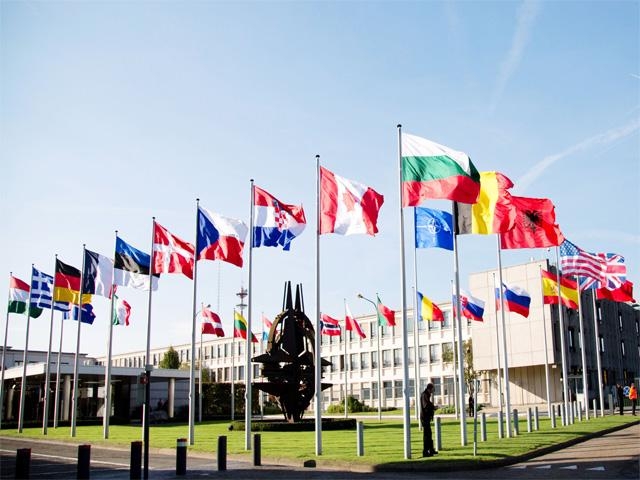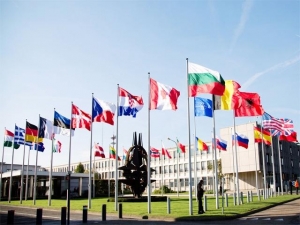Russia Blames West for Provoking Anti-Russian Feeling in Post-Soviet Countries
At the NATO defense ministers meeting in Brussels on Wednesday, NATO agreed to strengthen air, navel and ground forces to deter Russia from any arracks in the Baltic or Eastern Europe.
Reuters, an international news agency based in London, has written an article emphasizing that NATO defense ministers will rely on a network of new alliance outposts, forces on rotation and warehoused equipment to deter Moscow.
According to Reuters, Moscow blames the west for stirring anti-Russian feelings across the east, particularly in Georgia, Moldova and Ukraine, which it considers its historical sphere of influence.
Reuters reported that non-NATO member Georgia, which suffered a 5-day conflict with Russia in 2008 also warned NATO to be on alert.
"With the Kremlin, nothing can be excluded," Tinatin Khidasheli, Georgia's defense minister, told Reuters. "They cannot show weakness."
Meanwhile, today on February 11th, a session of the NATO-Georgia Commission was held in the Alliance Headquarters in Brussels, where Georgia’s Defense Minister Tinatin Khidasheli met with NATO secretary general Jens Stoltenberg.
Following the meeting, Stoltenberg emphasized that Georgia is one of the closest partners of NATO.
“In Tbilisi, NATO and Georgian officers are working together to strengthen Georgia’s ability to defend itself. The new Joint Training and Evaluation Centre will start tactical training of Georgian officers in May. Today, we will review the progress that we have made. We will examine what more NATO can do to intensify our support. And we will discuss the regional security environment,” he stated.
Stoltenberg highlighted that Russia continues to violate Georgia’s borders and calls on Russia to reverse its recognition of the breakaway South Ossetia and Abkhazia regions independent states.












